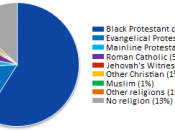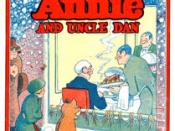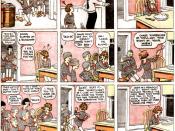Over time people of color have been degraded and dehumanized in many ways. In his 1973 book, "Comic Stripped", Arthur Berger refers to the early comic strip, Yellow Kid, whose "...world was that of tough, dirty little immigrant kids... There were Negro children, with kinky hair or thick white lips, Irish toughs, and mangy, ragged animals." (Berger, 27) "Babies and children permeate the cartoon and you get a sense that they are not really human; they are 'material' to be manipulated." (Berger, 30) "There is misspelling, which is a way of revealing ignorance and is part of the humor of exposure and embarrassment." (Berger, 31) This is a theme that saturates comic strips, even today.
In their 2001 book "Comics and Ideology", Matthew P. McAllister, Edward H. Sewell, Jr. and Ian Gordon qualify comics as an influential form of media.
"Although often comics are dismissed as the insignificant 'funnies,' they are also highly ego-involving for many readers..."
(McAllister, 4) "...research has emphasized the fact that the portrayals of life found in comic art are not neutral or random images. In practice, not just in theory, often comics' portrayals of social issues and representations of particular groups have significant ideological implications." (McAllister, 5) "... the communicative elements in comic art encourage the form to occasionally create a closed ideological text, imposing on the reader preferred meanings. The limited space in which the artist/writer has to work... may entice the creator to use stereotypes to convey information quickly... On the other hand, techniques...make comics a potentially polysemic text, encouraging multiple interpretations, even ones completely oppositional to any specific artistic intent." (McAllister, 3-4)
Black Americans are typically portrayed as "thugs" who have little or no escape from their bleak circumstances other than becoming musicians or athletes. Alternatively, black people are portrayed in highly...



Very Interesting.
Never read a essay on this kind of topic. Very cool and exciting read. Thanks
0 out of 0 people found this comment useful.